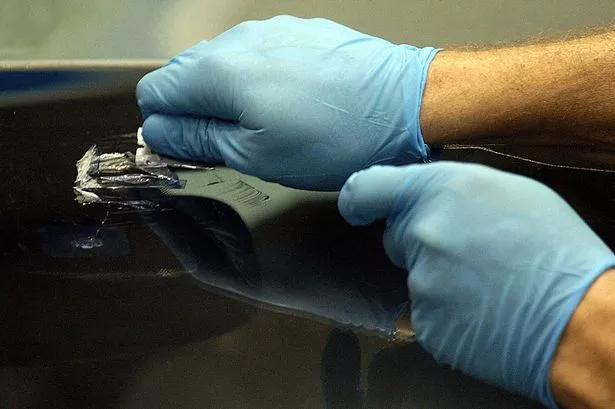
After more than two years in the making and faced with last-ditch interventions from industry lobbying and ministerial pressure, the UK has unveiled a pioneering bank transfer fraud refund programme.
As of Monday, the Payment Systems Regulator (PSR) mandates that over 1,500 banks, fintech companies, and other financial players are required to reimburse victims of authorised push payment (APP) fraud, imposing an upper reimbursement limit of £85,000 per claim, as reported by City AM.
Companies facilitating the initiation and receipt of payments must equally share the mounting costs, with the majority of refunds expected to be resolved within five business days. Firms can only reject a refund on grounds that the customer displayed "gross negligence".
However, this framework is restricted to transactions between UK accounts and excludes disputes regarding payments prior to the 7 October activation date.
Under the new rules, payment entities have the discretion to impose a £100 excess for fraud claims, resulting in de facto exclusion of claims under £100 which accounted for almost a third of APP fraud cases the previous year unless firms choose to waive this fee.
While not every institution plans to levy this charge against victims, they are obliged to clearly communicate their approach to affected customers. Moreover, those identified as vulnerable cannot be made to bear these excess charges.
The PSR maintains that its regulations are designed to protect consumers from significant monetary losses, all the while fostering a vigilant attitude towards potential financial scams.
David Geale, the PSR's managing director, announced on Monday: "Our new requirements will see all payment firms involved facing strong incentives to introduce more robust ways of identifying and preventing these scams from happening in the first place," He added: "Firms have already made a good start in making changes, and we expect to continue seeing new and innovative systems being rolled out to drive fraud out of our payment systems."
The UK has now become the sole country to implement this type of mandatory reimbursement scheme, which aligns with other strategies aimed at curbing the rising levels of online fraud.
Last week, the Treasury revealed its plans to provide banks with an extended period to delay and scrutinise payments where there are reasonable grounds to suspect fraudulent activity. Banks will now have up to four working days to either finalise or reject a payment, an increase from the current one-day window.
On 25 September, less than a fortnight before the rules were due to be implemented, the PSR confirmed that it would reduce the scheme's refund cap from £415,000 to £85,000 following significant lobbying from the fintech sector and concerns raised by the Treasury.
In a review of high-value scams, the regulator discovered that out of over 250,000 cases, there were 18 instances of individuals being defrauded for sums exceeding £415,000 in 2023, and 411 instances of amounts greater than £85,000.
Despite these changes, companies continue to express concern about the potential negative effects of the regulations on both the payments industry and consumers.
Fintech leaders have expressed concerns that adhering to the October implementation date will leave numerous companies unprepared to manage refund claims. In June, The Payments Association, a trade body with over 200 members, requested a one-year delay in implementing the rules.
The industry has also warned that companies remain vulnerable to significant losses due to multiple claims submitted by organised fraudsters. The Payments Association advocated for a £30,000 cap, which it asserts would cover more than 95% of cases.
Industry groups have further argued that the regulations do not hold technology firms accountable for the approximately three-quarters of fraud originating online.
The PSR's reversal last month sparked outrage among consumer groups. Rocio Concha, director of policy and advocacy at Which?, stated that the regulator had "shamefully sidelined scam victims" and that lowering the cap "reduces the incentive for banks and payment firms to take fraud seriously".
"We expect the regulator to closely monitor the protections that individual payment providers put in place to stop scams and be prepared to intervene and increase the threshold," she added.
Both financial trade bodies and consumer groups have cautioned that sophisticated criminal syndicates may attempt to exploit the rules for new scams, either by impersonating banks offering refunds or claiming reimbursement money under false pretences.
The PSR has committed to reviewing its scheme 12 months after implementation. While banks may choose to reimburse claims exceeding £85,000 voluntarily, victims who have been denied a refund can file a complaint with the Financial Ombudsman Service, which has a compensation limit of £430,000.
Prior to the regulator's enforcement, there were attempts to increase reimbursement rates among banks.
Many of the UK's largest banks had subscribed to a Contingent Reimbursement Model Code, introduced in 2019 and supervised by the self-regulatory body, the Lending Standards Board.
Banks within that scheme, which is being phased out from Monday, refunded 73 per cent of customers' APP fraud losses in 2023, up from 23 per cent in 2018.
TSB Bank initiated its own fraud refund guarantee scheme five years ago, which has resulted in it reimbursing 97 per cent of APP scam victims. A source close to the situation stated that TSB had advocated for all banks to adopt a similar system.
After declaring an intention to legislate in May 2022, the government granted the PSR enhanced powers through the Financial Services and Markets Act last June to introduce its new regime.
According to the banking trade body UK Finance, the total number of APP fraud cases surged by 12 per cent annually last year to 232,429.
Reported losses to this type of scam amounted to £459.7m. However, some experts believe the actual figure is likely closer to £700m as approximately a third of scams are estimated to go unreported.
Recent
See All2025-05-15
Assura highlights UK healthcare's pivotal moment as demand for private services surges
2025-05-15
Belron International's profits soar by 120% as Autoglass owner's sales near £500m
2025-05-15
Trio of Humber Haines Watts offices acquired by Xeinadin
2025-05-15
Cavendish warns of 'short-term uncertainty' as City braces for Budget tax hikes
2025-05-15
Booming London insurance market creates hundreds of new jobs amid tech innovation
2025-05-15
From potential unicorn to financial struggle: HSBC abandons stake in fintech Monese
2025-05-15
Private equity giants gear up for Hargreaves Lansdown takeover with expanded lender group
2025-05-15
Acuity Law moves to new offices in Swansea to support growth plans
2025-05-15
Investors withdraw £1.1bn from Liontrust as UK budget concerns impact fund flows
2025-05-15
AAB expands its footprint in Northern England with acquisition of Bolton's Barlow Andrews and Beech Business Services
Newsletter
Get life tips delivered directly to your inbox!










